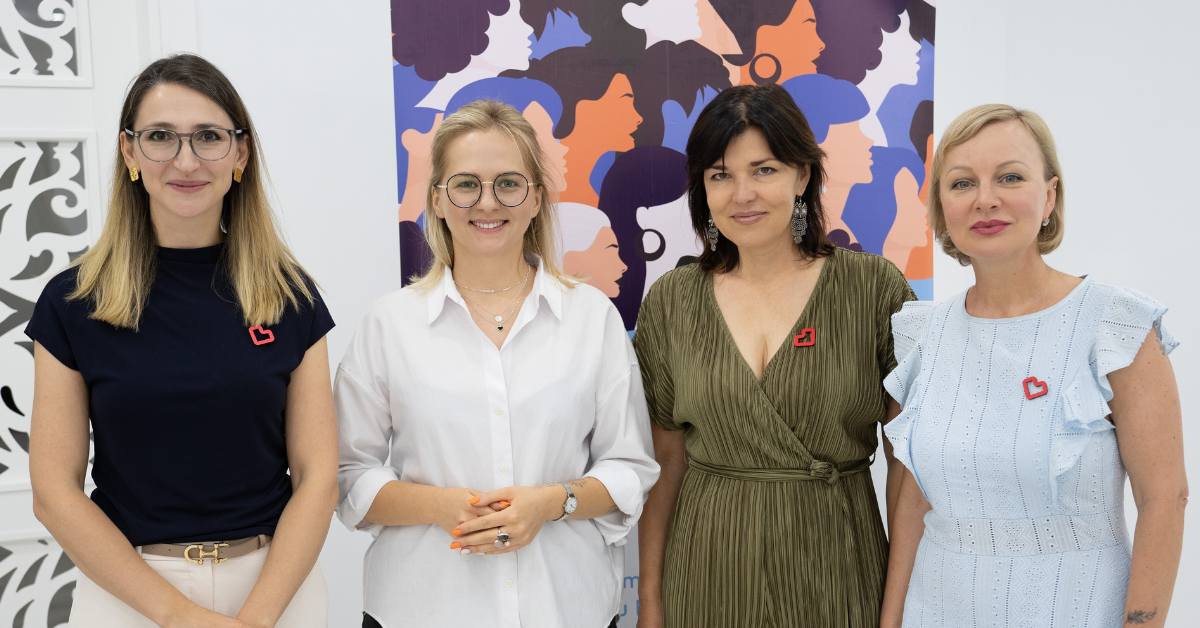
Iana Stantieru admits that she is a busy woman. She hardly has any free time, but she doesn’t mind. She is doing work she long dreamed of doing. It is work that brings her great joy.
In addition to her day job at a multinational company, Iana devotes her evenings, weekends, and holidays to Femeile Moldovei, or Moldova’s Women, an initiative she co-founded, that is changing the futures of women in rural Moldova.
“Femeile Moldovei is a platform to support women to have a stronger voice in society. It works to empower them so that they can have confidence and trust in themselves and in their power,” she explains.
“We educate them through training, mentoring and through our summer schools. We help them develop their communication skills and leadership capacity, as well as media skills. We give them technical skills so that they can better position themselves within their current roles,” she continues.
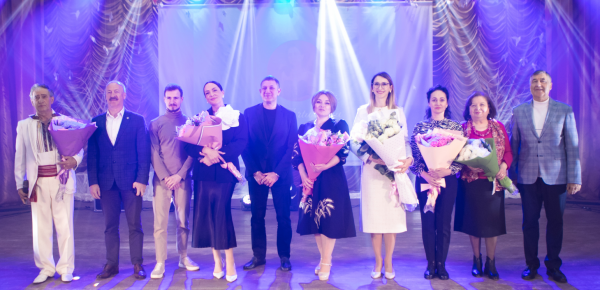
Iana, who recently moved home to Chisinau, explains that it was the experience of working abroad that convinced her of the importance of this work.
“I’ve lived in 12 different countries, and I’ve seen women’s empowerment and engagement in different contexts. There is huge pressure on women here to be perfect mothers, perfect wives, to look great, and to hold down a job, but little of what they do is really valued. I wanted to change these perceptions and to make their voices heard,” she says.
Over the past eighteen months, Iana and her team have engaged with thousands of women in villages across Moldova.
Iana relates that on the previous Sunday, Femeile Moldovei hosted a huge concert and cultural event attended by over 500 people in Cahul in south Moldova, mostly woman, but also the local mayor, and even a priest.
This follows a highly successful similar event in the north of the country held on the 8th of March, International Women’s Day.
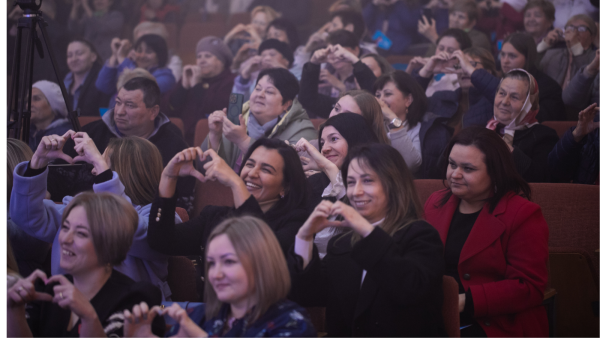
Iana explains that Femeile Moldavei started as a series of meetings in villages, where women spoke about their situations and needs. She still gets goosebumps when she remembers these meetings. For many women, this was the first time anyone had ever asked them about their needs and listened to them.
“They were used to dedicating time to others, to helping everyone except themselves. They never had an opportunity to invest in themselves.”
It was thanks to these discussions that the need for a training and mentorship programmes emerged.
An EED grant enabled Iana and her co-founders to launch Femeile Moldovei. The group identified key contact people in each rural area as focal points. Local women are very open to the project, and many have approached the group via contacts or social media to take part.
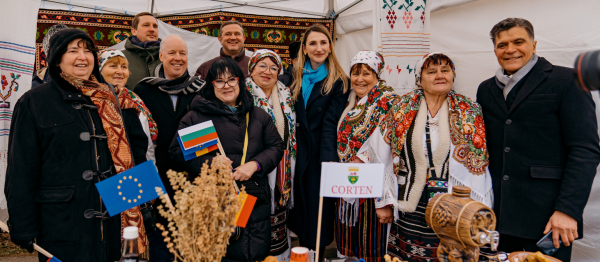
The initiative engages with women of all ages, backgrounds and political views, including women who work as teachers, local administrators, library directors, business owners and medical practitioners, among many others. These are women already active in their communities. They are ‘mini-influencers’, according to Iana.
Femeile Moldovei have a network of experts to deliver training in areas such as project management, fundraising, European projects writing, local governance, leadership, communication skills and public speaking. Iana also carries out the trainings sometimes, or she moderates.
She explains that networking and community building are core to the success of the project, which brings women together from throughout the country, including from minority regions.
“We put women from different counties in Moldova together. We have a strong mentoring programme. Sometimes, it’s reverse mentoring, because every woman knows something. They learn so much from each other,” she says.
Iana emphasizes that Femeile Moldovei does not engage in politics, yet she acknowledges that the initiative clearly has political influence, which is critical at a time when Moldova is facing an upcoming election and a referendum.
“Anyone can take part in our project. There are no boundaries when it comes to political affiliation, but we’re verbal that we’re fighting for a pro-European future of our country and women need to have a voice in this,” she says.
Femeile Moldovei are now planning a Winter school, to follow up on a highly successful Summer school, attended by 65 leaders from across the country. They are also now hoping to develop a training programme for entrepreneurs, and are thinking about a project to increase women’s participation in the media.
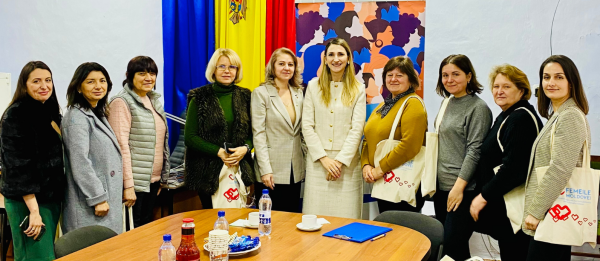
Iana emphasizes that key to the long-term sustainability of the project is ensuring that the women themselves take ownership of the initiative.
“They can build their own capacity, set up their own organisations locally, in whatever shape that takes – an NGO, or community groups. They need to be clear about what they need and how they are going to go about it, and to convince others that they can make positive changes,” she says.
She admits that the Soviet legacy in Moldova can mean that this is a change of mindset for many women, who traditionally expect the state to take charge, but she has already seen how Femeile Moldovei’s work has been transformative.
“If you want to change something in your community, you have to take the initiative. You have to be the leader of change. There is no magic coming from the sky. You’re the leader,” she says.
This article reflects the views of the grantees featured and does not necessarily represent the official opinion of the EED.